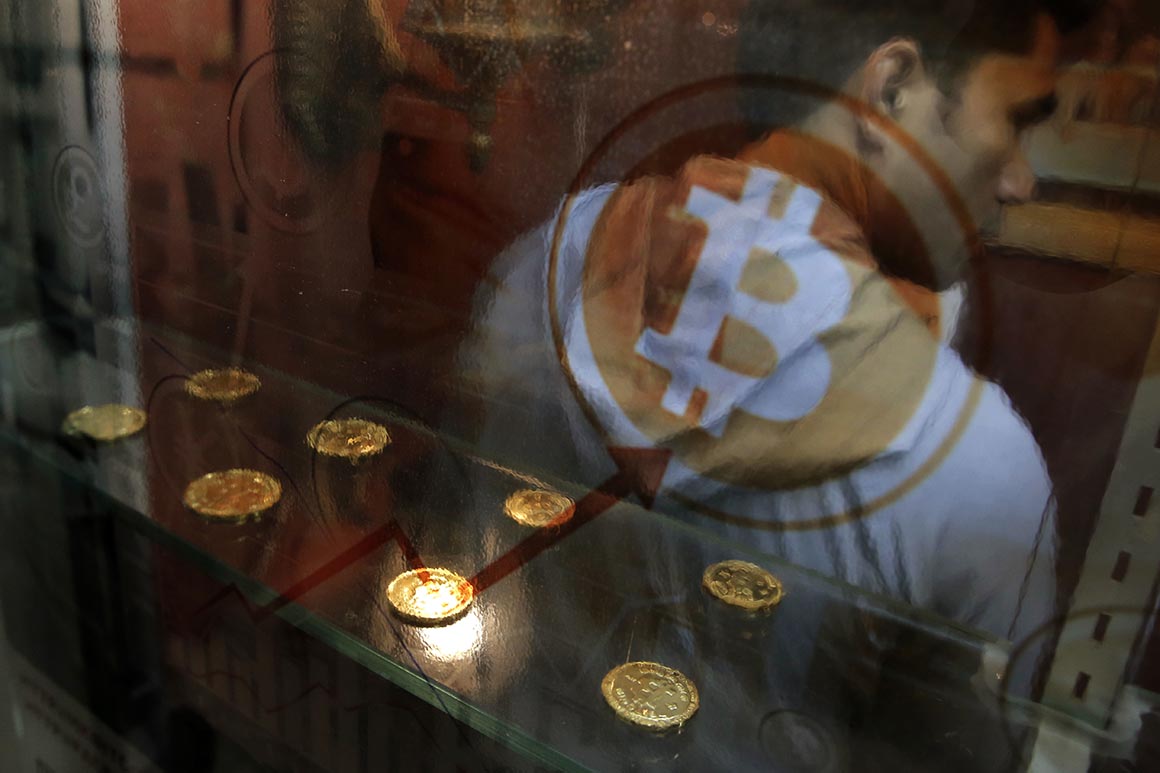
There’s a crypto-sized hole in U.S. sanctions targeting Russian financial institutions and oligarchs.
Rapidly evolving digital markets have created new ways to subvert heavy-duty penalties that were designed to cut off wealthy Russians and state-backed institutions from the U.S. financial system in the aftermath of the invasion of Ukraine. With Moscow now a hotbed for high-risk exchanges and mixing services — which scramble the ability to track the flow of transactions on public blockchains — crypto marketplaces could blunt attempts to freeze Russian assets.
“I don’t think that we’re where we need to be in terms of preventing individuals who are subject to sanctions from moving value and operating using the pseudonymity of cryptocurrency,” said Stuart Levey, who was Treasury’s sanctions czar under Presidents George W. Bush and Barack Obama. “I don’t think that we in the U.S. have fully grappled with that risk.”
Offshore exchanges for buying and selling digital assets often don’t require identifying information that could assist financial regulators and law enforcement, said Levey, who’s also the CEO of Facebook’s now-scuttled cryptocurrency project Diem. The rise of decentralized finance platforms — peer-to-peer networks that allow parties to transfer assets without having to go through intermediaries like banks or credit services — also plays a role.
“If somebody can bypass all of those intermediaries and bypass the fact that they have to reveal their true identity to enter the system and to conduct a transaction,” he said, “then that leads to the potential for sanctions evasion.”
Treasury officials say they aren’t overly worried about crypto undermining the effort to choke off the Kremlin’s access to capital. Laundering large amounts of money through a dizzying array of digital wallets and exchanges is expensive, time-consuming and would likely be visible in the broader crypto market, given the massive investment portfolios of individuals and institutions named in the sanctions.
"The scale of what they have to move, and where they have to move things from, [crypto’s] not necessarily going to be that concerning,” said Todd Conklin, counselor to the deputy Treasury secretary. Any attempt to move that much money through exchanges would contribute to “a bit more of a spike in the crypto market, in my view, than has been observed lately.”
As Russian forces advanced toward Kyiv, President Joe Biden on Thursday unveiled another round of sanctions that would freeze assets held by Russia’s largest banks and members of Vladimir Putin’s inner circle. The U.S. has also moved to block the Russian government’s access to sovereign debt markets and high-tech industries in an attempt to force a suspension of the conflict.
The latest restrictions arrive amid Moscow’s emergence as a hub for washing digital assets collected through ransomware attacks, darknet marketplaces and other scams. The data firm Chainalysis, which specializes in tracking activity on blockchain networks, identified several Moscow-based crypto businesses whose services help facilitate schemes that have generated hundreds of millions of dollars for cybercriminals.
Prior to the invasion of Ukraine, Treasury sanctioned two Russian crypto exchanges that were found to have processed transactions that had been tied to ransomware attacks and other illegal activities. The exchanges, Suex and Chatex, were both tied to Russian investor Egor Petukhovsky — who denied participating in illegal activity via his Facebook page last year.
U.S. exchanges require customers to submit information that could help agencies trace assets to a specific user, but decentralized services and certain off-shore exchanges can be used to move assets without identifying information.
“While the U.S. government can always do more, they’re not doing nothing. They are aware that this is an issue, and they are using multiple tools at their disposal to make sure that they have this area covered,” said Inca Digital CEO Adam Zarazinski, whose firm helps federal regulators track activity in crypto markets. “The Russian government is absolutely aware that cryptocurrency is a major option for them.”
Other authoritarian regimes under sanction have already started to lean on crypto markets to finance government projects. United Nations security experts have linked North Korea to attacks that netted hundreds of millions of dollars, some of which were laundered through peer-to-peer decentralized finance platforms. Analysts have also found that Iran’s Bitcoin mining industry is aiding its ability to duck sanctions that block its institutions from accessing financial markets.
The Treasury Department previously identified crypto as a major threat to sanctions programs in a report released last fall, noting that federal authorities would need to bulk up institutional knowledge of digital assets and associated services or risk diminishing their effectiveness. Mixing services, particularly if coupled with anonymity-enhanced tokens like Monero, are a potent mix for those looking to move large amounts without leaving fingerprints.
That isn’t to say there aren’t drawbacks to the strategy. Most crypto assets are traded on publicly visible blockchains that make it easier for law enforcement agencies or third-party agencies to track the flow of payments from wallet to wallet. And while mixing services can be useful, they can also be costly for those trying to launder large quantities.
“We have never had more visibility of financial flows and money laundering than we do today in cryptocurrency,” said Ari Redbord, a former Treasury official who now heads legal and government affairs for the blockchain intelligence company TRM Labs. While obfuscation tools can be useful for smaller criminal organizations and hackers, “it is hard to offramp crypto in large amounts.”
----------------------------------------
By: Sam Sutton
Title: Russia's hidden tool to undermine sanctions
Sourced From: www.politico.com/news/2022/02/25/russia-crypto-sanctions-00011886
Published Date: Fri, 25 Feb 2022 18:35:07 EST






